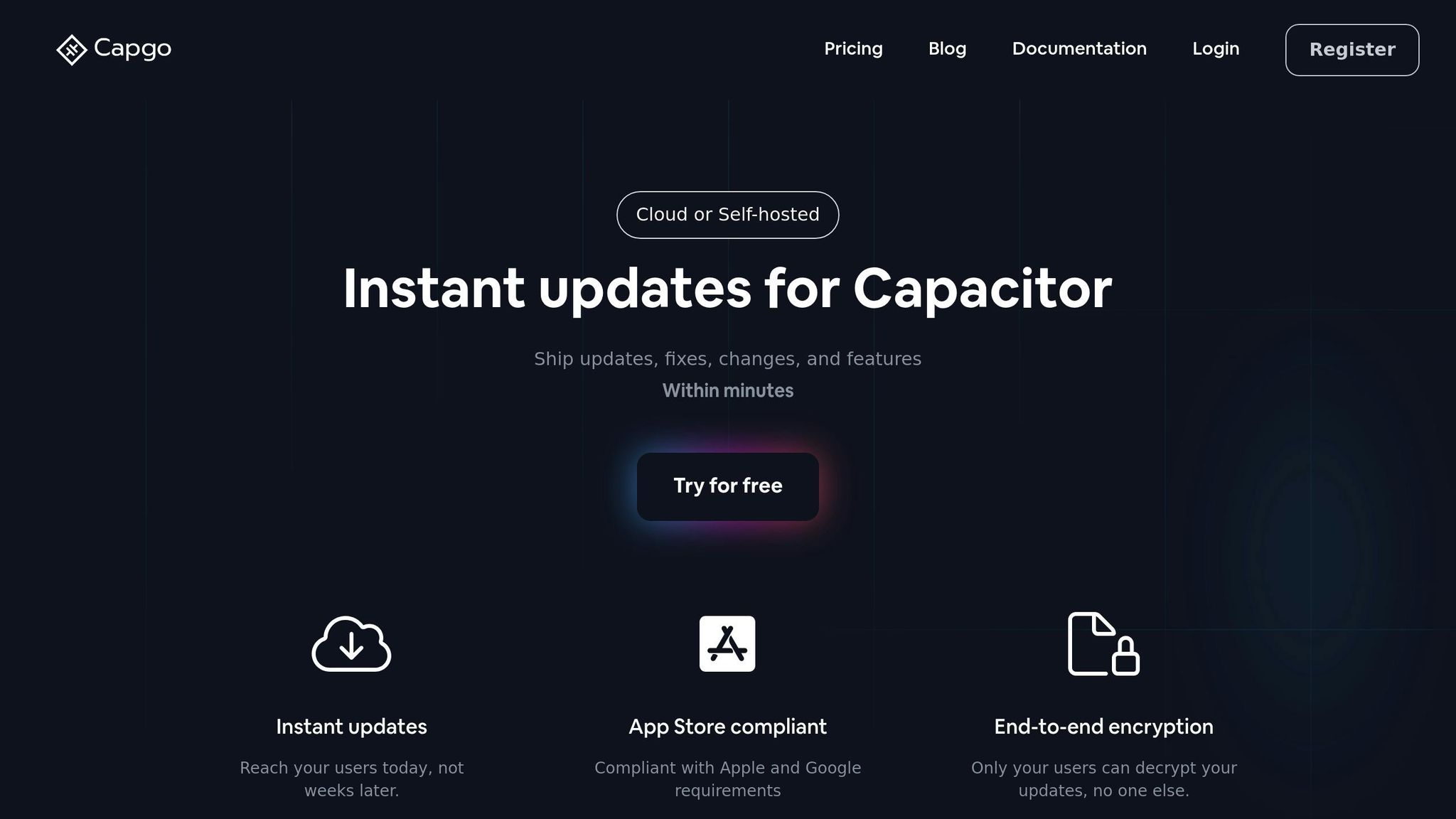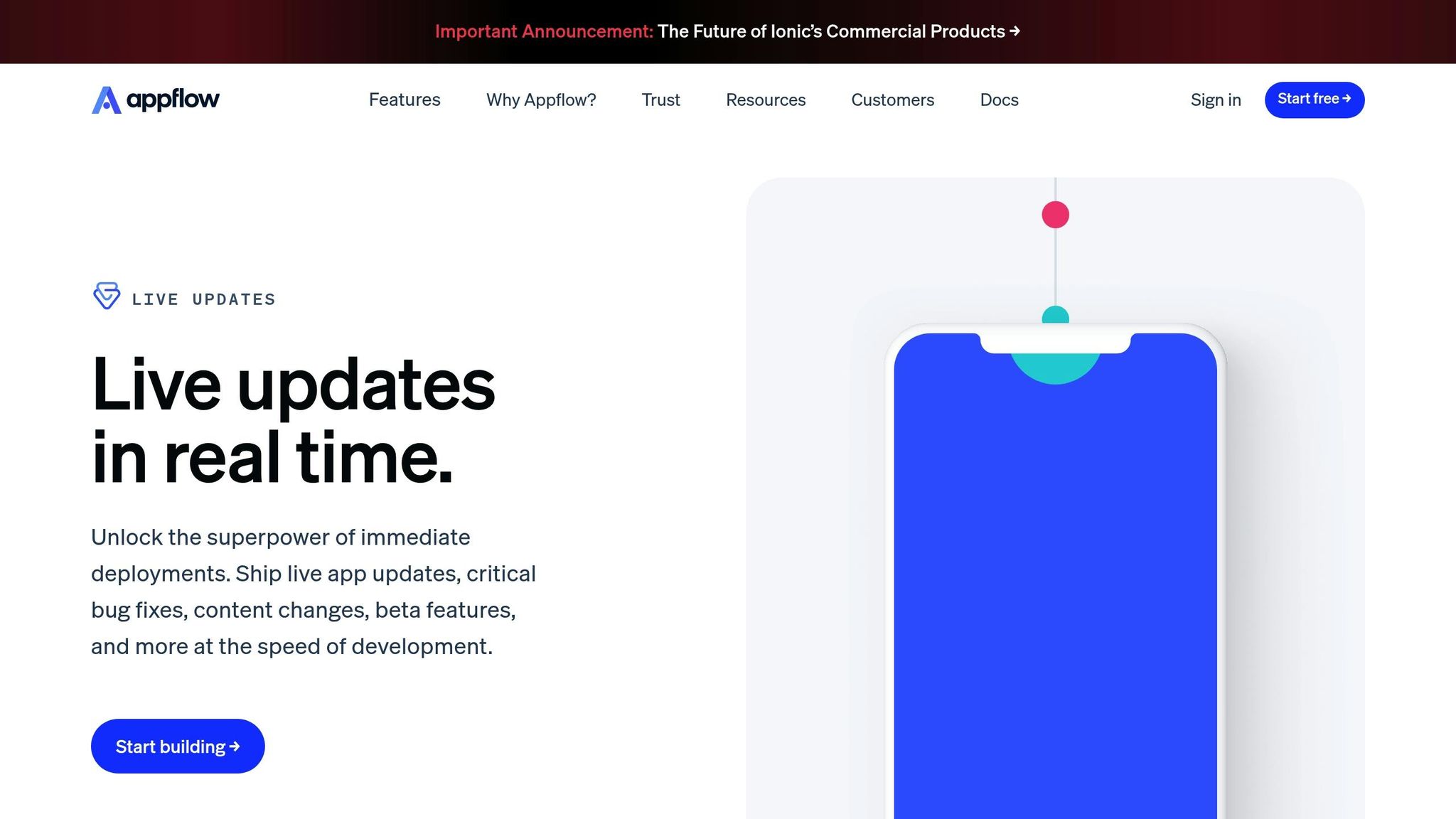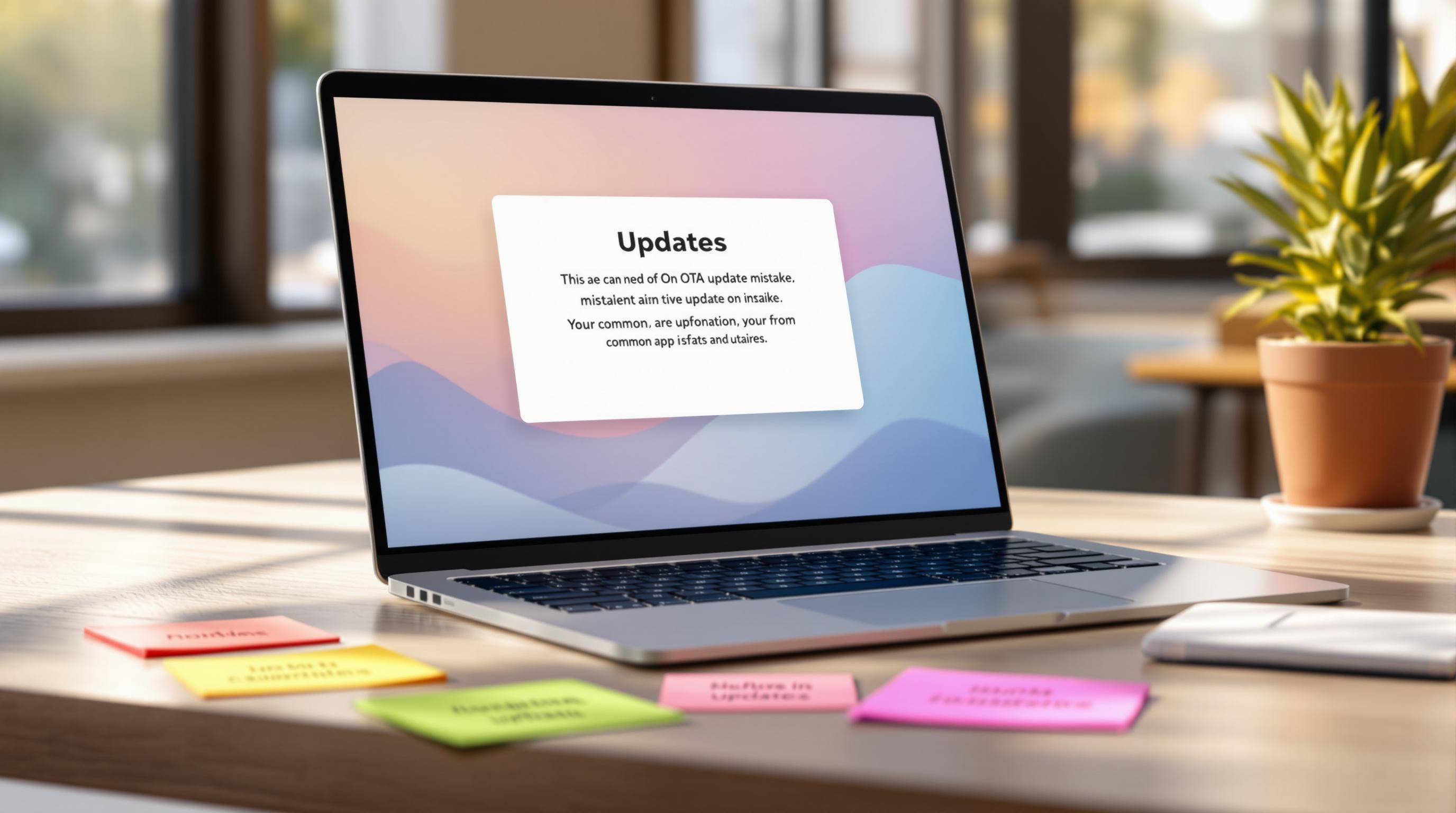Want your app approved by Apple or Google? Start with secure payment data. App stores demand end-to-end encryption for payment data to meet compliance standards. Without it, your app could face rejection or removal. Here’s what you need to know:
- Capgo: Offers true end-to-end encryption, rollback controls, and self-hosting options. Costs $2,600 upfront + $300/month.
- Appflow: Partial encryption, inconsistent performance, and $6,000/year. Scheduled to retire in 2026.
- Microsoft Code Push: Discontinued in 2024, no end-to-end encryption.
| Tool | Encryption | Deployment Options | Cost | Status |
|---|---|---|---|---|
| Capgo | End-to-end | Cloud, Self-hosted | $2,600 setup + $300/month | Active |
| Cryptographic signing | Cloud | Similar to Capgo | Active | |
| Appflow | Partial | Cloud | $6,000/year | Retiring in 2026 |
| Code Push | None | Cloud | N/A | Discontinued in 2024 |
Bottom Line: Use a tool like Capgo to secure payment data, meet compliance, and avoid app store issues.
Swift Reduce, Are MVP’s Dead?, Apple Ads, App Security and …
1. Capgo

Capgo ensures secure payment data handling during live updates by using end-to-end encryption designed to meet app store standards.
What sets Capgo apart is its encryption method, where only end users can decrypt sensitive updates. This safeguards data from unauthorized access during updates.
Here are some key features of Capgo’s platform:
- End-to-end encryption: Sensitive updates can only be decrypted by end users.
- Self-hosting option: Gives businesses full control over their payment data.
- Rollback controls: Instantly revert updates if issues arise.
- Channel system: Send specific updates to targeted user groups.
Capgo’s approach has achieved an 82% global success rate for update deployments. Businesses can opt for either secure cloud hosting or self-hosting to align with their compliance needs.
By downloading only the components that have changed, Capgo minimizes risks and reduces bandwidth usage. So far, the platform has delivered over 1.155 trillion secure updates [1].
3. Appflow

Appflow allows live code updates but struggles with inconsistent performance and lacks built-in end-to-end encryption for payment data. This shortfall can lead to compliance issues and erode user trust, especially since it conflicts with Apple and Google’s payment-processing policies.
“@Capgo is a smart way to make hot code pushes (and not for all the money in the world like with @AppFlow) 🙂” - NASA’s OSIRIS‑REx team [1]
With Ionic planning to retire Appflow in 2026, teams need to transition to solutions that ensure reliable updates and strong encryption for payment data. Up next, we’ll take a closer look at Microsoft Code Push and its approach to security.
4. Microsoft Code Push (Discontinued)
Microsoft Code Push was discontinued in 2024 due to ongoing reliability issues and performance shortcomings. It also lacked built-in end-to-end encryption for payment data, a critical feature for many apps. Following its shutdown, many teams transitioned to Capgo, an open-source platform. Capgo provides end-to-end encryption, smooth CI/CD integration, and meets Apple and Google’s security standards for handling payment data, ensuring dependable live updates for apps dealing with sensitive payment information.
Tool Comparison Results
Here’s a breakdown of the tools based on security, compliance, deployment options, and cost:
-
Capgo: Offers true end-to-end encryption, complies with Apple and Google standards, supports both cloud and self-hosted deployment, integrates with CI/CD pipelines, and is open-source. OTA update pricing starts at $12/month. For teams needing automated CI/CD to build native apps, an optional one-time setup service is available for $2,600. Over five years, it could save up to $26,100 compared to Appflow [1].
-
Appflow: Features partial encryption and costs $6,000 per year. However, it is scheduled to be retired in 2026 [2].
-
Microsoft Code Push: Will be discontinued in 2024. It lacks end-to-end encryption and does not support CI/CD integration [1].
Summary and Recommendations
Here’s a breakdown of the key takeaways:
- Implement end-to-end encryption: Ensure updates and payment data are fully encrypted to meet app store security standards.
- Manage costs effectively: Initial setup costs $2,600, with a monthly fee of $300 - much lower than Appflow’s $6,000 annual fee [1].
- Stay compliant: Regularly update security measures and align with app store policies to avoid issues.
- Offer deployment flexibility: Choose between cloud or self-hosted solutions, giving you control over payment data security.
Following these steps will help streamline live-update workflows while meeting Apple and Google’s payment data requirements.




